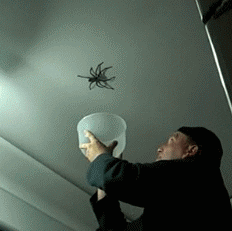
Huntsman spiders are notorious for their intimidating size and rapid speed. However, a common question arises among those cohabitating with these eight-legged creatures: are huntsman spiders aggressive?
What the Hell is a Huntsman Spider But Even More Importantly: WHY is it?!
The Huntsman spider is a member of the family Sparassidae, and is sometimes referred to as a giant crab spider. There are several types of Hunstman spider, including the Common Huntsman (Isopeda, Isopedella), the Banded Huntsman (Holconia), the Badge or Shield Huntsman (Neosparassus), the Tropical or Brown Huntsman (Heteropoda), and the Flat Huntsman (Delena). There are more than a thousand species within the family, spread out not just in Australasia, but also in Africa, Asia, the Mediterranean, and the Americas (including Florida).
Due to the venom in their fangs, plus their creepy crawler factor, spiders are generally feared. This is especially the case in certain parts of the world where spider bites can prove fatal for people. One such place is Australia.
People who have a healthy fear of arachnids have no doubt heard about red back and funnel web spiders. Their bites could cause death in a matter of minutes.
One other spider people would know about is the Huntsman, known for its large size and distinct look. Armed with its fearsome appearance, does it bring something else to the table that makes it dangerous to people?
Is the Huntsman Spider Dangerous?
Attitude Towards Humans
It is time to address the question of whether Huntsman spiders are dangerous to humans.
In truth, their general attitude towards humans indicates the opposite. When coming face to face with people, they usually opt to just run. They are more afraid of people than we are of them.They do have a funny way of showing their fear though, often trying to run up to a person instead of away.However, there are some instances where they will be poised to attack. If cornered and with nowhere left to go, they turn to the use of their fangs.In addition, when a female is disturbed when protecting their egg sacs, they are known to be overly aggressive.
LOW RISK TO HUMANS – timid – non-aggressive
Is a huntsman spider’s bite life-threatening? No. Huntsman spiders are not deadly to humans.
The bite of Huntsman Spiders is of low risk to humans.Huntsman spiders are a non-aggressive group of spiders. They are very timid and will try to avoid and when encountered can move at lighting-fast speed to escape human contact.
When it comes to the question of whether huntsman spiders are aggressive, the answer is generally no. These spiders are typically timid and non-aggressive towards humans. However, if threatened or provoked, they may resort to a defensive bite. A notable exception is female huntsman spiders guarding their eggs, which have been known to act aggressively in defense of their offspring.
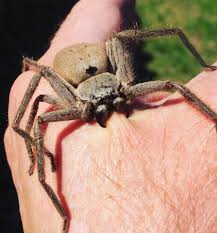
The Danger of the Bite
The bite of the Australian Huntsman Spiders is not as dangerous as that of other spiders such as spider wasps, tarantulas, giant crab spiders, and jumping spiders. In fact, in most cases, they are incapable of killing people with their bite.Like many other spiders, their Huntsman spider bite contains some venom. This venom though isn’t fatal for people. It only introduces a few minor symptoms to the general population which still need the application of a cold pack and further medical attention.
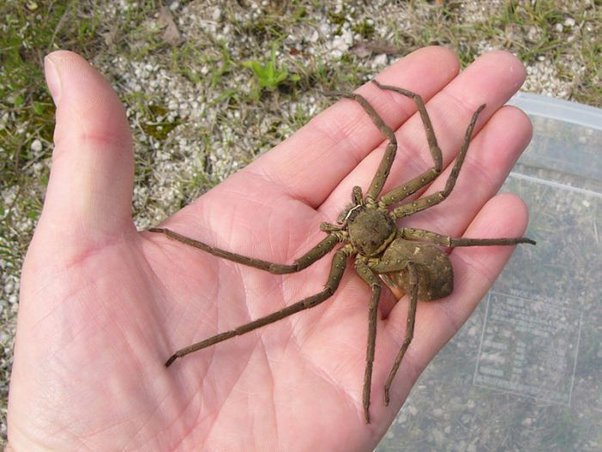
Here is a list of symptoms from this spider’s bite.
Instant Pain
These spiders have large jaws and big fangs, and because of these, the first thing that people will feel when bitten is pain.People can instantly see the area where they were bitten, connoted by puncture wounds. In some cases, there will only be one wound instead of two. It is likely because only one fang made contact with a person’s skin.Reports indicate that the pain felt here is the worst out of all the actual symptoms felt.
Swelling and Inflammation
Along with pain, the afflicted area may also swell and become inflamed. Additionally, the area may also have a tinge of itchiness. Such symptoms may occur especially if the bite came from a Badge Huntsman Spider (Genus: Neosparassus, Order: Araneae), a species within the same family.These are common symptoms of a spider bite, with people using it as a general indication that they have been bitten. However, it is important to know which spider bit them, as this will be useful in understanding how harmful the bite is and if other symptoms are likely to follow.These will usually go down on their own, but if they persist, medical assistance should be sought immediately.
Nauseous and Vomiting
Finally, people bitten by the Huntsman can also feel nauseous and have a bit of a headache. This will be accompanied by a need to vomit. If a person rests and keeps hydrated, they should come out just fine.It must be stated again though that if any of these symptoms persist, then it is in people’s best interest to seek first aid.
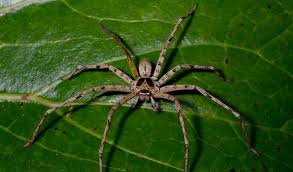
Biting Tendencies
While huntsman spiders can and do bite, it’s usually a defensive reaction rather than an act of aggression. They are more prone to flee than attack when faced with a potential threat. However, if cornered or protecting their young, they are capable of delivering a bite. It’s also notable that the leading cause of bites is human attempts to catch or handle the spider.
Poisonous or Venomous or Both?
To clear this up, the Huntsman spider is venomous but not at a level that is harmful to people. Even when bitten, most people simply experience a small amount of pain at the site of the Huntsman bite. The exception to this would be a person with an allergy to the venom, which can produce a more significant reaction.
However, the question “Are Huntsman spiders poisonous”? is more critical, particularly for those with children. Infants and toddlers may find the Huntsman spider intriguing. If children put the spider in their mouth and ingest the arachnid, there is a risk for the child. The younger the child, the more significant the risk.
Huntsman Spider Facts
A Huntsman spider is not dangerous to adults. Typically, they are more likely to run away if they have an exit route. These are spiders that do not weave a web but hunt their prey by roaming the area, which often puts them in close proximity to people in their homes.
The answer to the question of do Huntsman spiders bite is definitely a yes, but only if provoked or threatened. The best way to avoid having to worry about the Huntsman spider being poisonous or venomous is to treat your property to eliminate any spiders.
Anaphylaxis
In some rare cases, people may prove allergic to this spider’s bite, as well as the spider itself. If a person who is allergic to any of these comes into contact with them, anaphylaxis may be triggered which is dangerous in its own right.In one study, a Huntsman crawled over a man. This went on for about half an hour, leaving tracks of rashes along his arms. After medications, he was able to recover in just six hours.
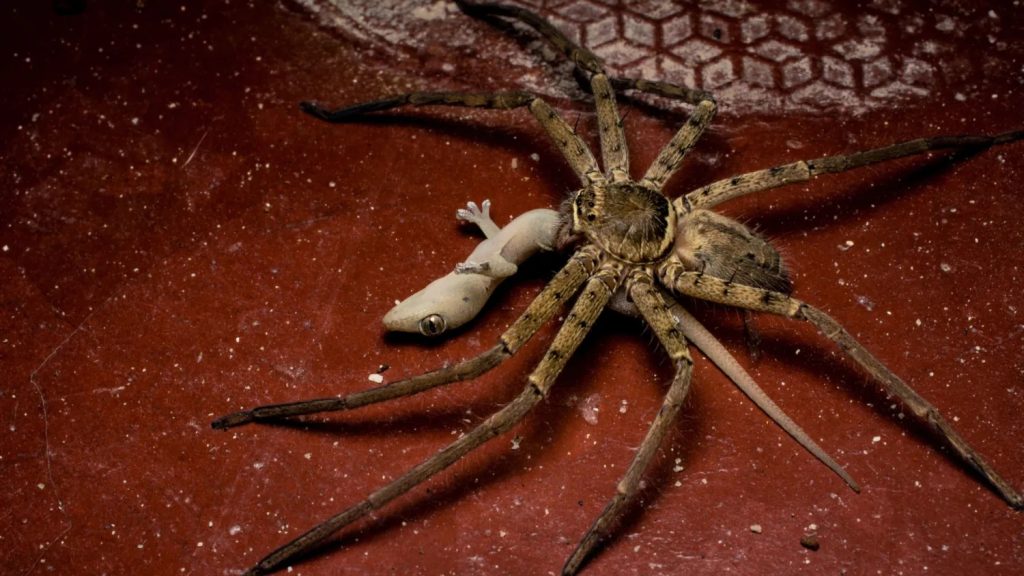
Danger Is as Danger Does
As an offshoot of Forrest Gump’s quote, “Danger is as danger does.” This means that depending on what happens and how it is understood, there is still a chance that something is dangerous.
In some cases, “danger” is a subjective concept and must be clearly defined. For starters, there is a distinction between fatal and dangerous. If the question is whether a social Huntsman Spider can kill humans, the answer is no.Despite that, their venomous bite is still something to be cautious over, presenting several dangers to people.One of the best things to do is learn first aid and be prepared for any spider bite.
while huntsman spiders may seem intimidating, they pose minimal threat to humans and pets. Their reputation as being aggressive is largely unfounded, with their bites more a result of defensive behavior rather than aggression. As with any wildlife, it’s generally best to observe from a distance and avoid direct interaction unless necessary.
